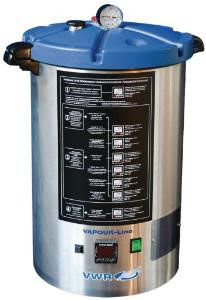Nesvax Innovations has partnered with world renowned company MLS to supply you with affordable autoclaves in Kenya. This item is very significant and can cause a lot of inconvenience when it does not operate as expected.
There are certain common mistakes made that end up affecting the machine such as using tap water. The use of tap water will result in the accumulation of minerals that will clog up the drain valves, filters and pipes. It is highly advised that you use distilled water to the extend the lifespan of the autoclave.
Nesvax also will offer you water distiller to cut costs on the huge amount of water needed especially if you use this instrument very regularly in your laboratory. However you need to be careful that you do not use too much nor too little water, filling the reservoir up to only 70% of its capacity is enough for the autoclave. Here are other maintenance tips you can apply:
- Prior to each exercise, when the instrument is cold, you will need to examine the door gasket for damage and cleanliness, and ensure there are no signs of debris and corrosion and make a point to wipe the gasket with a damp cloth.
- It is also important that you keep an eye on the highest temperature and pressure level together with the duration of the sterilization cycle and the drying cycle.
- Look for any water or a steam leak during or after each cycle. A leak is an outright sign of a malfunction that should be addressed right away.
- It is important that on a weekly basis you only clean the chamber with a product specifically recommended by the manufacturer and follow all its guidelines exactly. This typically requires placing a cleaning product at the bottom of a cold chamber, and running several cycles on an empty autoclave. The specific sequence is recommended by the manufacturer.

Nesvax has engineers who have specialized factory training from USA, UK, Germany and France who service lab equipment regularly. The PM involves running a series of tests to ensure that the equipment gives accurate results and functions well within its pre-defined limits. It also involves replacing of spare parts that have worn out and have reached their maximum usage. The spare parts depend on the equipment that is being serviced.
This servicing ensures that the equipment is performing efficiently and giving accurate and precise results from its readings. It also ensures that the equipment complies with specific industry regulations e.g. WHO and ISO regulations. The service typically takes between 1 to 3 days, depending on the equipment. Our engineers have carried out PMs across Africa including Kenya, Uganda, Tanzania, DRC, Somalia and Liberia.
If you’d like more information on our services, please contact us today at info@nesvax.co.ke
